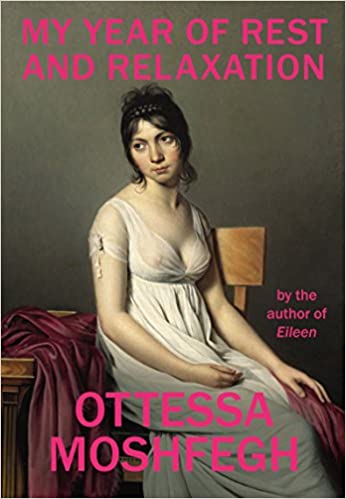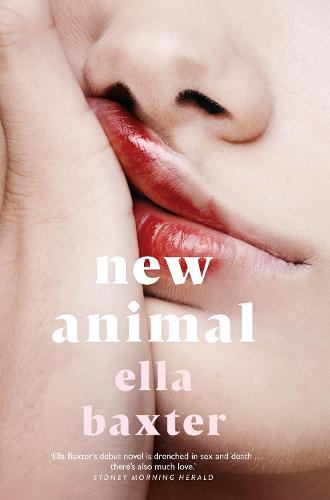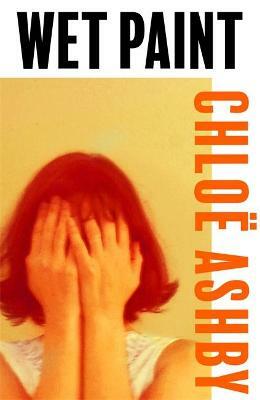Let's be honest: a woman luxuriating in her own accumulated filth is not something we have been accustomed to seeing in literature, an extension of rigid societal expectations with many of fiction’s historically lauded female characters recognised for their beauty, or at least their moral refinement. However, many recent writers have chosen to eschew The Divine Feminine for The Gross Feminine: women who make readers wince with descriptions of their bowel movements, who eat until they vomit for the pure pleasure of filling themselves to the brim, who expose the grotesque potential in sexual desire.
What makes a character a 'gross woman'? We're talking women who aren’t just happy to get a bit grubby now and then, or are a bit lax with their hair-wash routine. These women embrace filth and debauchery.
AdvertisementADVERTISEMENT
Existing examples are littered throughout recent contemporary fiction, creeping onto bestseller and literary prize lists (and rightly so). The undisputed queen of this genre is Ottessa Moshfegh with her character Eileen from her acclaimed 2015 novel of the same name. Eileen is gross. She works at a correctional facility for young boys but spends much of her time, and the novel, cataloguing her body’s input and output, joining her abusive, alcoholic father in bouts of gluttonous drinking in their isolated and squalid home, and lusting after a handsome prison guard from behind the "death mask" disguise of her mousy appearance and dead mother’s clothes. Eileen inspires the reader’s mirth, disgust and sympathy in equal measure as her inner monologue catalogues her thoughts as they swing from the absurd to the depraved.
“
Grossness is a part of human existence that is so often off limits for women, even in the depths of despair.
”
Moshfegh’s 2018 novel, My Year of Rest and Relaxation, is another prominent example. The novel made a belated splash on BookTok with countless (predominantly young) women lauding the book as one of their best reads of 2021. While TikTok’s power to catapult a novel onto bestseller lists is undeniable, it is interesting that a story with such an unlikeable and indelicate protagonist has resonated with so many. The unnamed protagonist aims to sleep for a year, believing this will cure everything that's wrong in her life. It is safe to say that her personal hygiene slips a little as a result. Not only that, she abuses pharmaceuticals to stay in her artificial slumber, is genuinely awful to her supposed best friend and shits in the middle of an art gallery to get back at her employer. Moshfegh’s command of the gross yet compelling is truly masterful. As readers we can’t get enough of these women and are eager to see what their next shameless action will be.
AdvertisementADVERTISEMENT
Other notable examples include the members of the eponymous eating club in Lara Williams’ 2019 Supper Club, who don outlandish costumes to eat until they are sick, tear at meat with their bare hands, throw food and take drugs in a sort of millennial bacchanal. Rachel Yoder’s breakout hit from last summer, Nightbitch (already optioned for a film starring Amy Adams), takes a subversive view of motherhood with a protagonist who grows taller, sprouts new patches of hair, discovers sharper teeth and gains new appetites. It’s a look at the isolation, anxieties and bodily changes of new motherhood, which Yoder realises in a grotesque animal form that readers can’t dismiss or shy away from. Last summer's Things Have Gotten Worse Since We Last Spoke by Eric LaRocca and 2018's Peach by Emma Glass are not for the fainthearted. They plumb the aberrant depths of sexuality and sexual assault and depict bodily self-destruction in genuinely stomach-churning ways. Each of these novels wears its gross elements on its sleeve as part of its appeal, tempting readers with the promise of a shocking portrayal of femininity.
AdvertisementADVERTISEMENT
“
They are about mental health or, more specifically, the ugly side of mental illness: what happens when you can't take care of yourself, when you're the bad person, when you're truly self-destructive.
”
Like Eileen, LaRocca’s characters Agnes and Zoe are isolated and craving connection by any means; the unnamed protagonist of My Year of Rest and Relaxation is grieving the sudden loss of her parents; the members of Supper Club seek refuge from their demons in the excesses of the club; Nightbitch tracks the grimy and depressing side of motherhood; Peach ruins her body in the aftermath of sexual assault. These novels aren’t just about the horrid reality of existing in a corporeal form, like so much media today. They are about mental health or, more specifically, the ugly side of mental illness: what happens when you can’t take care of yourself, when you’re the bad person, when you’re truly self-destructive. This is mental health beyond the narrow confines of fluffy slogans and aestheticised Instagram posts.
These characters are so compelling because there’s something painfully real about them. They say the unsayable, show what is usually hidden behind closed (and carefully locked) doors or relegated to a particularly grim thought you might quickly dismiss. Grossness is a part of human existence that is so often off limits for women, even in the depths of despair. There’s no shortage of male characters who burp, sniff after they scratch, bare all about their questionable sexual fantasies and are celebrated for it. In the past, portrayals of a woman sliding towards the unkempt might have amounted to unbrushed hair, day-old clothes (bonus points if they are still vaguely sexy) and chugging a few beers, particularly if these were characters written by men. An aesthetically curated mental breakdown, if you will.
AdvertisementADVERTISEMENT
Instead, these gross women offer a kind of realism that is refreshing for many readers frustrated with the current rhetoric around mental health. We might not have turned into a giant dog or openly admitted to languishing in our own filth but we recognise the nugget of truth and solidarity in these extreme portrayals. Anything that breaks out of the pastel-coloured self-care mould is to be praised.
Interest in such portrayals doesn't seem to be waning. 2020 and 2021 saw many releases in this genre, with Eliza Clark’s Boy Parts, Hysteria by the aptly named Jessica Gross, Chouette by Claire Oshetsky and Dead Relatives by Lucie McKnight Hardy all portraying elements of the gross feminine, to very warm receptions. 2022 is no exception, with notable upcoming releases across the publishing world. New Animal by Ella Baxter – billed as "profound, profane and darkly hilarious" – makes its UK debut in February after finding success in Baxter’s native Australia. The novel follows a mortuary makeup artist into the Tasmanian BDSM scene as she tries to make sense of a sudden loss. Also making its UK debut this year is Mona by Pola Oloixarac (translated from Spanish by Adam Morris). First published in 2019, Mona is being sold as a blend of Moshfegh’s grit and Sally Rooney’s examination of writing and academic spaces. Chloë Ashby’s Wet Paint, coming this April, is yet another example which explores the "strange and unstable" post-university years (relatable). Ashby has stated that the novel is about women’s bodies, alienation and trauma, and the perfect storm of self-destruction this can create.
Gross women are not leaving the literature scene any time soon, with the appetite for subversive portrayals of women only growing as publishers seek out more and more titles to feed this demand. What remains to be seen is how this increased visibility and popularity will affect the genre. Will it be able to keep up its rebellious spirit once it is firmly in the public eye? Or will it go the way of so many once-defiant feminist tropes: get cleaned up, watered down, made sexier and more palatable and lose the radical power it once held.
AdvertisementADVERTISEMENT











